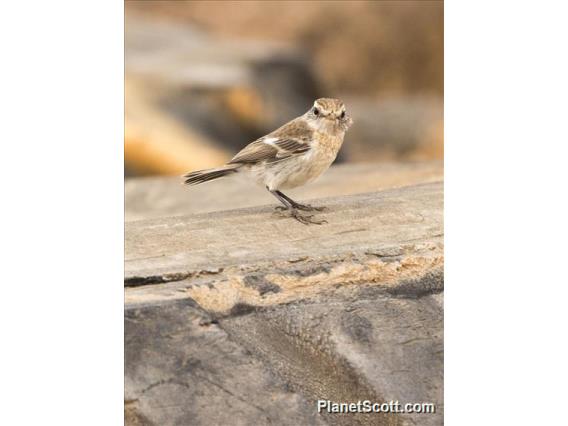Fuerteventura Stonechat (Saxicola dacotiae)

Fuerteventura Stonechat (Saxicola dacotiae)
×


Fuerteventura Stonechat (Saxicola dacotiae)
About Fuerteventura Stonechat (Saxicola dacotiae)
- Kingdom: Animals
- Phylum: Chordates
- Class: Birds
- Order: Perching Birds
- Family: Old World Flycatchers
The Canary Islands stonechat, also known as the Fuerteventura stonechat or Fuerteventura chat, and formerly known as the Canary Islands chat due to its once widespread distribution on the Canary Islands, is a sedentary resident bird found only on the island of Fuerteventura where it is known as the Caldereta.
Source: Wikipedia
Visits
-
2015-03-24
Los Molinos, Spain× -
×




